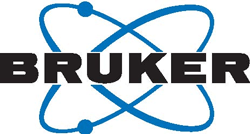NMR-based fragment screening for drug discovery

Fragment-based screening (FBS) has emerged over the last 15 years as a widely used alternative to high-throughput screening (HTS) for the identification of lead compounds in drug discovery. NMR based fragment screening has proven to produce high-quality hits for Fragment Based Lead Discovery and Bruker now offers a complete workflow solution which shall be the focus of this webinar, held by European Pharmaceutical Review and supported by Bruker.
There are a number of biophysical methods used for fragment screening from which NMR is the most popular and reliable techniques and is used in more than 50% of fragment screening campaigns. NMR is ideally suited for detecting low affinity ligands in primary screens. In addition, screening by NMR allows quality control of the screening library which makes NMR superior to other methods. However, a drawback is the number of spectra generated, sometimes in the 100s or 1000s, which must be analysed manually in parallel by a trained operator – a time-consuming, labour-intensive activity that creates a substantial bottleneck in the process.
In this webinar, Stefan Jehle, Ph.D. and Pavel Kessler, Ph.D. from Bruker BioSpin outlined how Bruker’s TopSpin software, together with a newly launched FBS tool, can help overcome this stumbling block by facilitating the workflow, improving efficiency and minimising human error.
This webinar explained how Bruker’s TopSpin software can simplify FBS by NMR.
What attendees learnt during this webinar:
- Introduction to the TopSpin FBS tool
- Software customisation options
- Automation solutions in NMR
- Detection hardware and cryoprobes
- Druggability assessment and ID of aggregating molecules
During this webinar, the pair will introduce you to Bruker’s newly launched FBS tool that works with the TopSpin software and explain how it helps to greatly accelerate data analysis during NMR based FBS by incorporating all screening data into one place and automating many of the processes that are usually done manually. When the tool is launched, all relevant data, experiment types, compound IDs, reference spectra and other information is automatically collected and stored in a project file. During analysis, the software also automatically saves each action, including any hits, ensuring accurate records and freeing up operators to focus on applying their chemical knowledge.
They described what makes the software so user-friendly and easy to incorporate into existing workflows, as well as creating scope for people without an expert knowledge of data analysis to conduct this kind of research.
Keynote speakers
Stefan Jehle, Ph.D., Product Manager, Bruker Solutions for Fragment Based Drug Discovery


Stefan Jehle, Ph.D. is a product manager at Bruker for solutions in fragment based screening using NMR who has extensive experience in solution and solid-state NMR spectroscopy, and has previously carried out research into FBS lead discovery during his time at Boston University.
Pavel Kessler, Ph.D., Group Leader User Experience, Bruker MRS Application Development


Pavel Kessler, Ph.D. who works on user experience at Bruker. Dr. Kessler has over three decades of experience in software development for NMR and is responsible for the development of Bruker’s FBS tool for TopSpin.
Supported by Bruker Biospin
Bruker has been driven by the idea to always provide the best technological solution for each analytical task for more than 50 years. Today, more than 6,000 employees are working on this permanent challenge at over 90 locations worldwide. Bruker systems cover a broad spectrum of applications in all fields of research and development and are used in all industrial production processes for the purpose of ensuring quality and process reliability.
Find out more: www.bruker.com





